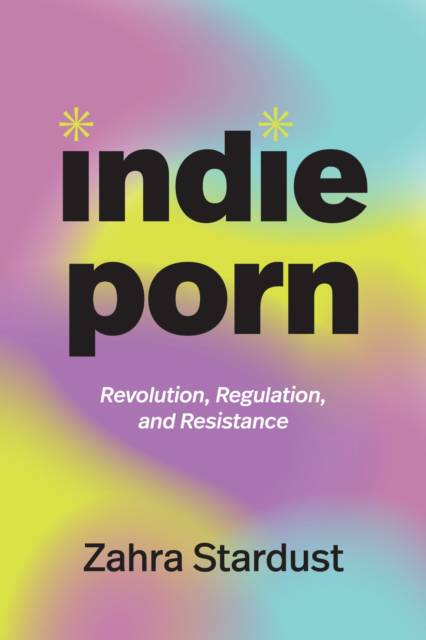
- Afhalen na 1 uur in een winkel met voorraad
- Gratis thuislevering in België vanaf € 30
- Ruim aanbod met 7 miljoen producten
- Afhalen na 1 uur in een winkel met voorraad
- Gratis thuislevering in België vanaf € 30
- Ruim aanbod met 7 miljoen producten
Zoeken
Omschrijving
In Indie Porn, Zahra Stardust examines the motivations and interventions of independent porn producers as they navigate criminal laws, risk-averse platforms, discriminatory algorithms, and rampant piracy. Herself a porn performer and participant, Stardust takes readers behind the scenes, offering intimate insights into this sociopolitical movement. She finds politicians who watch porn in parliament, protesters leading face-sitting demonstrations, sex workers making COVID-safe pornography, and artists reverse-engineering porn detection software. Against the backdrop of a global gig economy, Stardust documents the promises of indie porn to democratize content, revolutionize production, and redistribute wealth while outlining the fantasies of regulators, whose illusions of what porn is and does foreclose possibilities for transformation. Inevitably, as these paradigms collide, porn producers engage in creative tactics to hustle for survival and visibility, from ethical certification to law reform, sometimes reproducing hierarchies of stigma themselves. By highlighting how porn stigma is bound up with intersecting oppressions, Stardust identifies these junctions as coalitional opportunities for changing social relationships to sex, work, and capitalism.
Specificaties
Betrokkenen
- Auteur(s):
- Uitgeverij:
Inhoud
- Aantal bladzijden:
- 328
- Taal:
- Engels
- Reeks:
Eigenschappen
- Productcode (EAN):
- 9781478031062
- Verschijningsdatum:
- 29/10/2024
- Uitvoering:
- Paperback
- Formaat:
- Trade paperback (VS)
- Afmetingen:
- 152 mm x 229 mm
- Gewicht:
- 453 g

Alleen bij Standaard Boekhandel
+ 88 punten op je klantenkaart van Standaard Boekhandel
Beoordelingen
We publiceren alleen reviews die voldoen aan de voorwaarden voor reviews. Bekijk onze voorwaarden voor reviews.







